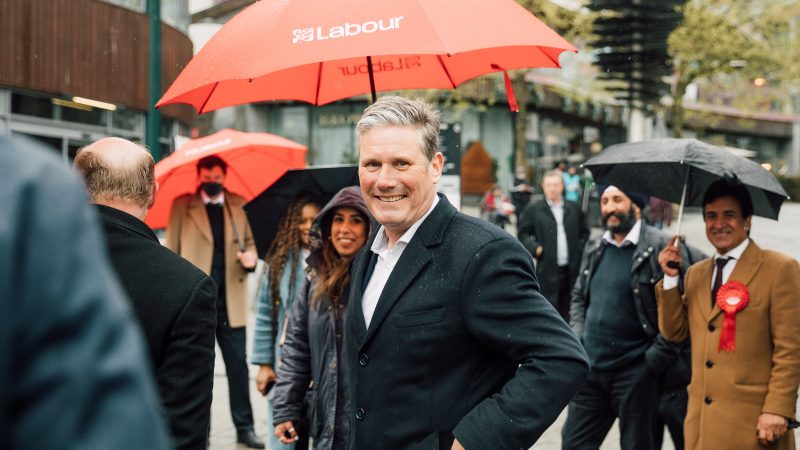
2019 saw seats previously considered safe, Labour-heartland constituencies turn blue. Caught on the horns of Brexit, the party saw lifelong supporters back Boris Johnson – armed as he was with his pithy ‘get Brexit done’ strapline. Whether or not Keir Starmer’s leadership is viewed as a success has, to a large extent, rested on the extent to which he is seen as able to win back those seats at the next general election. Things looked bleak and his leadership was rocked when the opposition failed an early test in the Hartlepool by-election defeat, but Labour’s electoral fortunes have since improved. And polling, published last night, suggested that voters in the ‘Red Wall’ are now ready to return to Labour.
According to Redfield & Wilton Strategies, Labour has a 38-point lead over the Conservatives in the Red Wall seats that were so crucial in delivering Johnson that whopping 80-seat majority just under three years ago. 61% of people in the North of England and the Midlands told the pollster that they would back Labour in the next election, while support for Liz Truss’ party has slumped to just 23%. Of course, this is just a snapshot of the current public mood. It does not tell us how people will feel at the next general election – but the polling is positive for Labour and few would have thought, in December 2019, that we would be in this position now.
How we got here is largely down to the Conservatives; the ‘partygate’ scandal – entirely of Johnson’s own making – brought down a Prime Minister who secured the biggest Tory majority since the 1980s; and the recent economic turmoil, sparked by the Tory mates’-rates ‘mini-Budget’, betrayed a naked ambition to make a huge tax giveaway to the richest in society and tanked the pound. In this context, Starmer’s managerial style – criticised by many for being boring and not radical enough – is unsurprisingly appealing to the public.
Beyond that, however, we have also seen Labour put some (much needed) flesh on the bones of its policy offer to the electorate. Rachel Reeves and Ed Miliband announced last week that Labour will establish a ‘national wealth fund’ (which looks a bit like the national investment bank proposed by the party in 2019) to invest in new industry and take a public stake; Lisa Nandy declared that a Labour government’s mantra would be “council housing, council housing, council housing”; Louise Haigh confirmed plans to renationalise rail; and Starmer’s proposal to create a publicly owned energy company has been well received.
Labour is doing well in the polls – and a large chunk of the recently reported leads are undoubtedly down to Tory chaos. But it is no coincidence that they also come as the party is setting out a clear alternative to the Conservatives. Its policy offers are showing not only that the party is a serious contender for government, but where its priorities lie. If there is a lesson for the leadership to learn here, it is that people respond when a clear choice is put to them.
Labour is a long way from No 10. Truss will try and reset her leadership in her speech to Tory Party conference today following the disastrous mini-Budget and subsequent U-turn on the top rate of income tax. She has breathing room in that the next general election does not have to take place until January 2025 – and if the poll leads of recent weeks have shown us anything, given where we have travelled since the 2019 election, is that the political mood of the country can shift significantly over a short period of time.
On LabourList for readers today, we have Morgan Jones’ interview with Northern Ireland’s SDLP leader Colum Eastwood, following her sit down with Irish Labour Party leader Ivana Bacik earlier this week. And Dr Liz Hind has written on Labour’s offering for business: “Businesses need a plan. They need certainty, and at the moment, it is only Labour that is capable of giving it.”
Sign up to LabourList’s morning email for everything Labour, every weekday morning.



More from LabourList
‘Council Tax shouldn’t punish those who have the least or those we owe the most’
Two-thirds of Labour members say government has made too many policy U-turns, poll reveals
‘Two states, one future: five steps on the path to peace for Israelis and Palestinians’